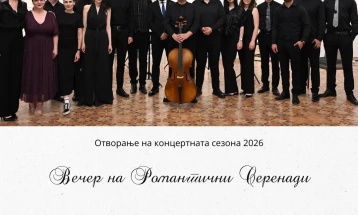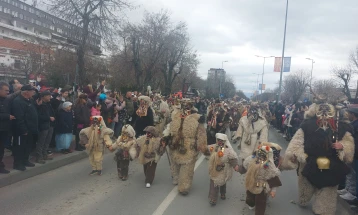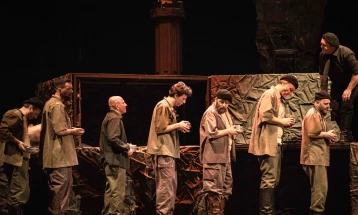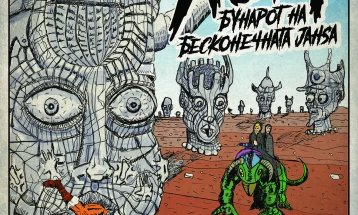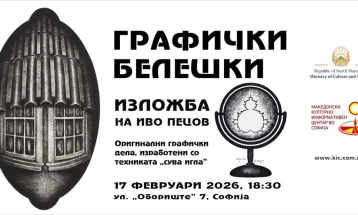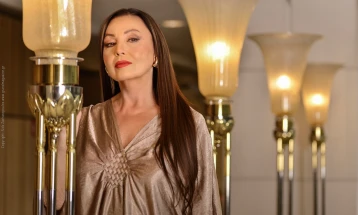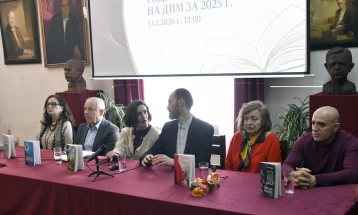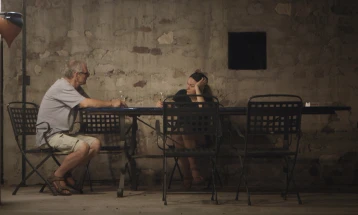Skopje European Capital of Culture 2028 – opportunity for cooperation with region, European countries: Mayor
- The benefits of Skopje’s designation as European Capital of Culture for 2028 will be felt by all its citizens, because it represents an excellent opportunity for cooperation and communication between regions and European countries, said the Mayor of Skopje, Danela Arsovska, at a press conference Thursday.
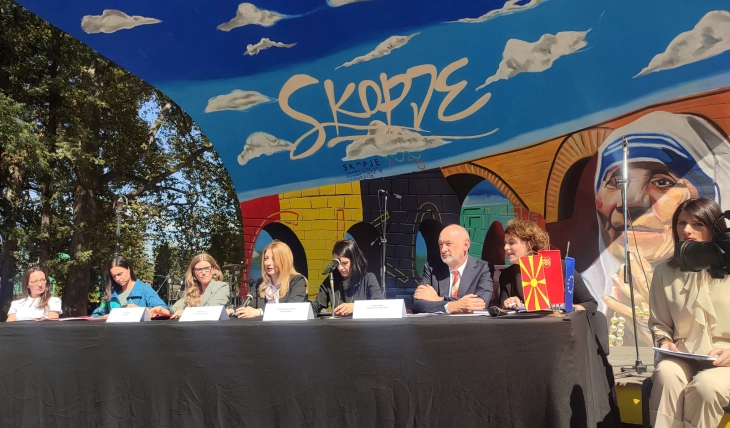
Skopje, 28 September 2023 (MIA) – The benefits of Skopje’s designation as European Capital of Culture for 2028 will be felt by all its citizens, because it represents an excellent opportunity for cooperation and communication between regions and European countries, said the Mayor of Skopje, Danela Arsovska, at a press conference Thursday.
At the press conference, Arsovska said that the city will cooperate with some of the cities which have already been designated as European capitals of culture for the years before 2028.
“Two cities from the European Union, from Czechia and France, will actively collaborate with us, they will participate in the same process. However, we will also work closely with the city in Germany which was designated as capital of culture for 2025. The list of close collaborators includes cities from Slovenia, Croatia, but also from the entire region. I hope that our successful national project will also be a successful regional and European project,” said Arsovska.

The Skopje Mayor noted that the benefits will be felt by all citizens of Skopje and the country, as well as the citizens of the entire region, because, she said, “this represents a fantastic opportunity for cooperation and communication between regions, between European countries, on projects and programs in the field of culture.”
“For me personally, as Mayor of the City of Skopje, it was exceptionally important that we achieve this, because Skopje 2028 – European Capital of Culture was a part of my election program and the program chosen by the citizens of Skopje. With this victory we realized one more of the promises made to our citizens and I really highly value the input provided by each of our citizens, of our teams and the participants from the city’s administration. I am also grateful to the Government and the Minister of Culture, for the selfless support throughout the entire process,” said Arsovska.
At the press conference, Culture Minister Bisera Kostadinovska-Stojchevska noted that Skopje’s designation as European Capital of Culture represents a great success for Macedonian culture.
According to the Minister, in 2028 Skopje will be a meeting point of cultures with their wealth, uniqueness and diversities, which will be used to cement and strengthen the European sentiment in everyone.

“The advantages are enormous, the opportunities are endless. I urge a creative mobilization of all cultural workers and artists, of the independent cultural scene, young authors, innovative individuals, creative industries, non-governmental sector, tourism workers, craftsmen, business community, media... We have a potential which, I am convinced, will not miss the chance to present itself in the best possible light. This should be our shared investment in an unforgettable year, a year in which Skopje will be a dignified and remarkable European capital of culture,” said Kostadinovska-Stojchevska.
The Minister reminded that the Government, through the Ministry of Culture, has obliged itself to provide unreserved support for Skopje 2028.
EU Ambassador David Geer said at the press conference, that the most important thing about Skopje 2028 will be the involvement of young and talented people, and noted that the EU will provide support throughout the entire process.

“In 2028, Skopje can be the beating heart of culture in Europe. This will require vision and tireless determination, and the involvement of everyone across communities and across the political divide, and crucially, involving young people who are so talented and have so much to give. I congratulate the Mayor and Minister of Culture and all that have done so much to achieve this goal. Now it is time to put this vision into practice,” said Geer.
Elizabeta Jovanovska, who is a part of the team tasked with realizing the project, said that marginalized groups will have a place on the stage as well.
“We will have a chance to show the talents and abilities of this group of our citizens to the broader public, with free admission to all events, we will enable a better social life for people with disabilities,” said Jovanovska at the press conference.
Photo: MIA
